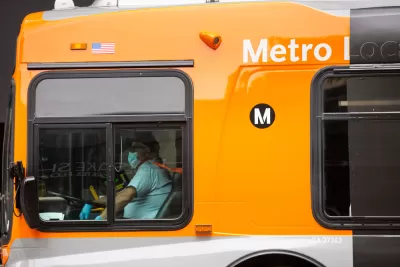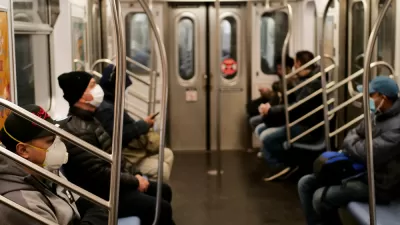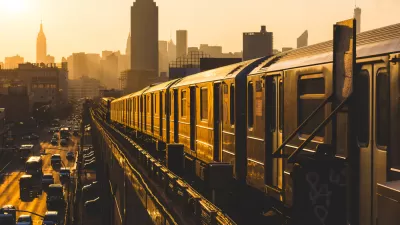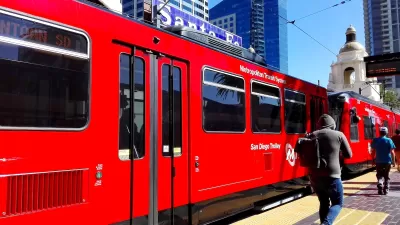Bus systems all over the country are cutting service due to an ongoing shortage of operators—the drivers who make the whole system go. A few examples of success provide a way forward.

The shortage of bus drivers around the country reached crisis proportions long ago. Cities everywhere are cutting service for lack of drivers, including Seattle in March, Portland in June, and Milwaukee in October. A March 2022 survey by the American Public Transportation Association found that nine out of ten transit agencies are having trouble hiring bus operators. Another 71 percent of transit agencies are cutting or delaying service due to ongoing operator shortages.
According to an article published by TransitCenter, two transit agencies, the New York Metropolitan Transit Authority and the San Diego Metropolitan Transit Authority (MTS), are outperforming their peers when it comes to hiring and retaining operators. Interviews with Craig Cipriano, chief operating officer of New York City Transit, and Sharon Cooney, CEO of MTS, provide insight into how their agencies have been able to maintain their workforces.
The article cites competitive wages as a primary driver, especially in New York City. San Diego has offered $5,000 signing bonuses and removed human resources backlogs to make it easier to get people on the job. The MTA has increased training and licensing capacity to keep a steady flow of new recruits behind the wheel. San Diego reports various stages of development on new parking and childcare facilities to help younger people and mothers, especially, navigate the non-standard work hours of drivers.
A primary concern of both agencies is the safety and health of operators. While the risks of Covid-19 for drivers have lessened since early 2020, operators have been sounding alarms about an increasing number of assaults. Protective barriers, extra conflict resolution training, and improved communications are touted as safety measures already in place in New York.
FULL STORY: How to Maintain a Frontline Workforce in 2022

Alabama: Trump Terminates Settlements for Black Communities Harmed By Raw Sewage
Trump deemed the landmark civil rights agreement “illegal DEI and environmental justice policy.”

Study: Maui’s Plan to Convert Vacation Rentals to Long-Term Housing Could Cause Nearly $1 Billion Economic Loss
The plan would reduce visitor accommodation by 25% resulting in 1,900 jobs lost.

Planetizen Federal Action Tracker
A weekly monitor of how Trump’s orders and actions are impacting planners and planning in America.

Waymo Gets Permission to Map SF’s Market Street
If allowed to operate on the traffic-restricted street, Waymo’s autonomous taxis would have a leg up over ride-hailing competitors — and counter the city’s efforts to grow bike and pedestrian on the thoroughfare.

Parklet Symposium Highlights the Success of Shared Spaces
Parklets got a boost during the Covid-19 pandemic, when the concept was translated to outdoor dining programs that offered restaurants a lifeline during the shutdown.

Federal Homelessness Agency Places Entire Staff on Leave
The U.S. Interagency Council on Homelessness is the only federal agency dedicated to preventing and ending homelessness.
Urban Design for Planners 1: Software Tools
This six-course series explores essential urban design concepts using open source software and equips planners with the tools they need to participate fully in the urban design process.
Planning for Universal Design
Learn the tools for implementing Universal Design in planning regulations.
Caltrans
Smith Gee Studio
Institute for Housing and Urban Development Studies (IHS)
City of Grandview
Harvard GSD Executive Education
Toledo-Lucas County Plan Commissions
Salt Lake City
NYU Wagner Graduate School of Public Service





























